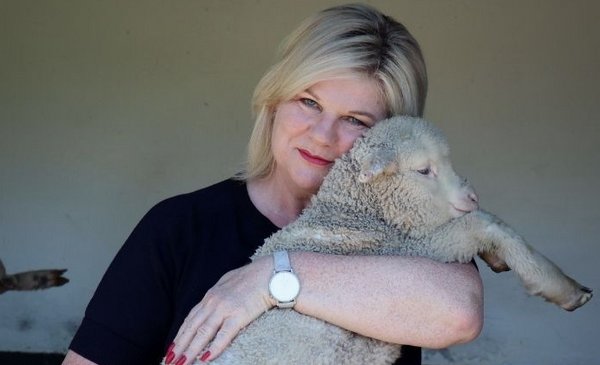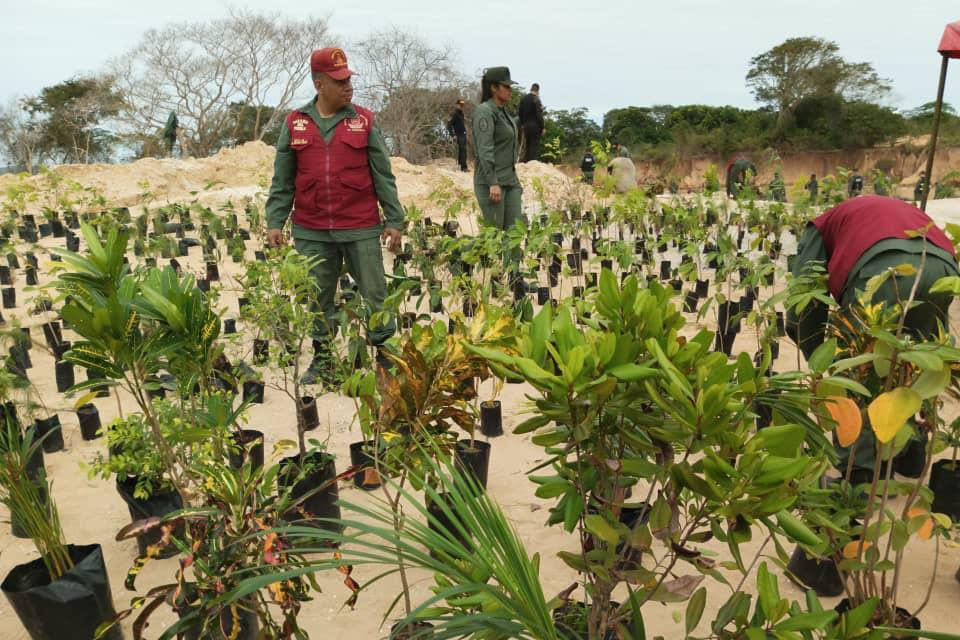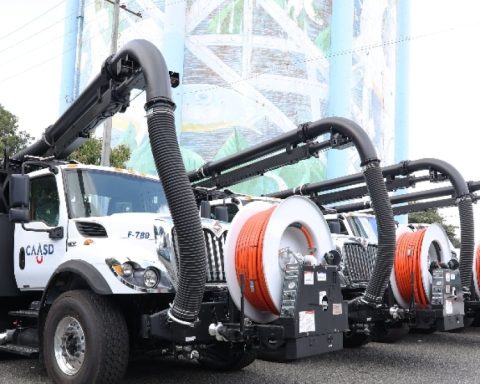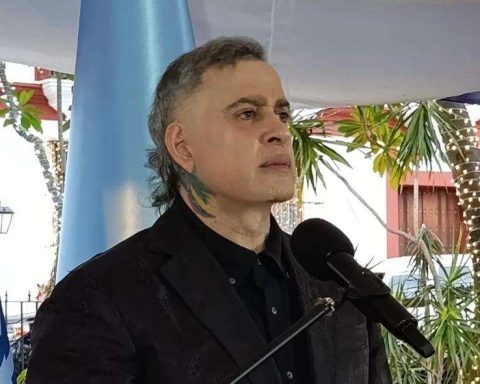Brit Vinje Lyngstad and her husband Eilif Bernard lived on a farm in northwest Norway.in one of the most humid areas of the country, where windstorms and rains were a thing almost every day. Eilif, who was a farmer, would come home wet and cold. after working in the field, so his wife decided to do something about it and in 1990 she got a wool ultrafine first shearing and with his knitting machine he developed a new weaving technique, with which he left “air pockets” between the stitches, to give the garment better insulation.
Her love for her husband and her taste for knitting allowed her to manage to make a better quality sweatshirt than he already had, which gave Eilif greater protection on cold days. more than 30 years, That story led one of the couple’s daughters, Gunn Anne, to discover the Uruguayan countryside..
Brit’s idea spread from field to field in Norway, so much so that the woman saw an opportunity to start a business, pawned several objects, borrowed money, traveled to Switzerland and bought a larger weaving machine than she had, to So create your own company: Lanullva, a brand that was born in 1994 and that currently uses Uruguayan Merino wool to make different garments for adults including divers, hats, socks, jackets, and also for babies.
Web Lanullva
The Lanullva company was born from Brit’s love for her husband Eilif and the goal of sheltering him in the field.
an inherited love
Brit led the company until 2007, when he retired and Gunn Anne took over. The young businesswoman, who grew up in the countryside, among animals, and has a great taste for nature, he inherited his love for wool from his motherso that over the years he learned more and more about production, since on the farm that he lived with his parents, grandparents and brothers there were no sheep, but some cattle, dogs and ducks.
“My mother introduced me to the world of wool and I discovered that it is a wonderful material”assured from Spain (where he lives) Gunn Anne to The Observer. “My relationship with wool was given by my mother,” she added, recalling that as a child she wore garments knitted by Brit, “she kept us warm with wool,” she said.
In 2019, the Nativa team – an ultrafine wool certification brand that highlights animal welfare in wool production and traceability – contacted Gunn Anne. Until now, the firm worked with Merino wool from different markets, but Gunn Anne did not know in detail which countries it came from.

native kindness
Lanullva imports 40 tons of Uruguayan Merino wool a year to produce woven garments.
From Norway to Uruguay, round trip
Upon learning about the processes that producers working with Nativa had to go through, Gunn Anne was delighted and began preparing to fulfill an invitation: Get to know the Uruguayan countryside and how Merino wool is produced of those who produce sheep and send them to Nativa.
“I thought what they told me was great,” said the businesswoman.
Some time later he packed the suitcase and traveled to Uruguay. When he arrived, he was in the city for a short time, because He came to the country with a clear objective: to go to the countryside and see how sheep are raised up close.
He visited two farms, La Soledad, in Gabriel Bordabehere (in Tacuarembó), a producer who sells her wool to the fashion company Gucci; and Piedra Mora, the family establishment of Ana Araujo and her family, located in Paysandú.
For Gunn Anne “it was wonderful to go” to both camps.

native gentleness
Gunn Anne and Ana Araujo at the Piedra Mora establishment, one of the establishments the businesswoman visited when she was in Uruguay.
“It was very important for me to see the production process, because I buy a lot of wool. I left so happy to have known so much. Merino wool is very goodIt is very soft and the fabrics last a long time and when you put on a garment made with that wool you feel like you have nothing on. I think that Merino is the best wool of all”, he stressed.
Since he visited Uruguay, he knew that Lanullva’s garments would have Uruguayan woolnot only for its quality but also for the treatment of the producers with the sheep and respect for animal welfare.
The company, which has six stores in Norway, buys 40 tons of Uruguayan Merino wool a yearand Gunn Anne assured that the objective is to increase that amount.
The path that the wool makes from the local field to the store is long. The sheep are sheared in Uruguay, the tops are sent to Austria, where the spinning mill is located, the yarn is exported to Spain, where the factory is located, and the finished garments are sold in Norway..
The businesswoman’s plans are to start exporting garments to some European countries this year.

native kindness
Gunn Anne has the desire to visit Uruguay again.
Love for the animals
With a view to increasing her business, Gunn Anne currently lives in Spain, for this reason and because she adopted two dogs in a Spanish shelter and Norwegian laws do not allow her to bring them to the country unless they have lived with her in a home constituted by a same address for at least six months.
The love for animals is something that this businesswoman has had since she was a childThat is also why he pays a lot of attention to animal welfare, and that is why he sought to work with wool that would guarantee sustainable production and in which the animals did not suffer mistreatment.
According to his company’s website, In searching for the best suppliers of Merino wool, Gunn Anne encountered many animal welfare issues on her various travels around the world..
In Uruguay, the businesswoman was delighted with the management practices, she said, and that is one of the reasons why she wants to visit the country again and why she wants to be able to stay on a sheep farm for several days , to learn more about the field routine.

native gentleness
Animal welfare is one of the factors to which the businesswoman pays the most attention.


















